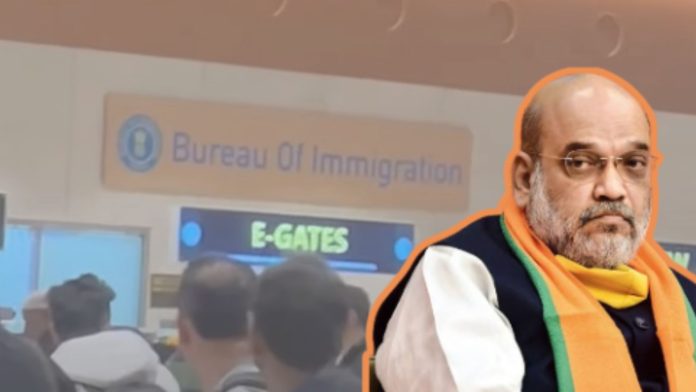New Delhi: The Union Home Ministry has issued a notification exempting certain categories of foreigners from penal action under the Immigration and Foreigners Act 2025. The order grants relief to Hindus, Sikhs, Buddhists, Jains, Parsis, and Christians from Afghanistan, Pakistan, and Bangladesh who entered India on or before December 31, 2024, even without valid passports or visas. They will not face detention, deportation, or fines under the new law.
The government has clarified that this exemption does not alter the conditions under the Citizenship Amendment Act (CAA) of 2019. The CAA continues to limit eligibility for Indian citizenship to non-Muslim minorities who migrated before December 31, 2014. The new provision only allows those arriving later to remain in India without fear of legal action, but without any assurance of citizenship.
This selective exemption has sparked fresh anxiety among Muslims in India. Community leaders say the order reflects a consistent pattern of legal changes that exclude Muslims. They fear that while non-Muslims are being offered protection, Muslims who fled similar persecution from neighboring countries remain unrecognized. Concerns are also mounting that these policies could eventually pave the way for differential treatment of Indian Muslims in matters of citizenship.
Opposition parties in Bengal and Assam accused the government of using the order to polarize communities ahead of state elections next year. They warned of demographic manipulation and called the move a continuation of divisive politics. Critics pointed to earlier protests against the CAA, during which over 100 people were killed, as evidence of the deep mistrust generated by such measures.
The government, however, has defended the decision as humanitarian relief for persecuted minorities. BJP leaders celebrated it as a corrective step, although confusion arose when a minister initially claimed that the citizenship cut-off date under the CAA had been extended, before later retracting his statement.
For Muslims across India, the development reinforces fears of exclusion from the legal framework of protection and belonging. Many worry that the repeated sidelining of their community in key laws weakens the promise of equal citizenship guaranteed by the Constitution.




